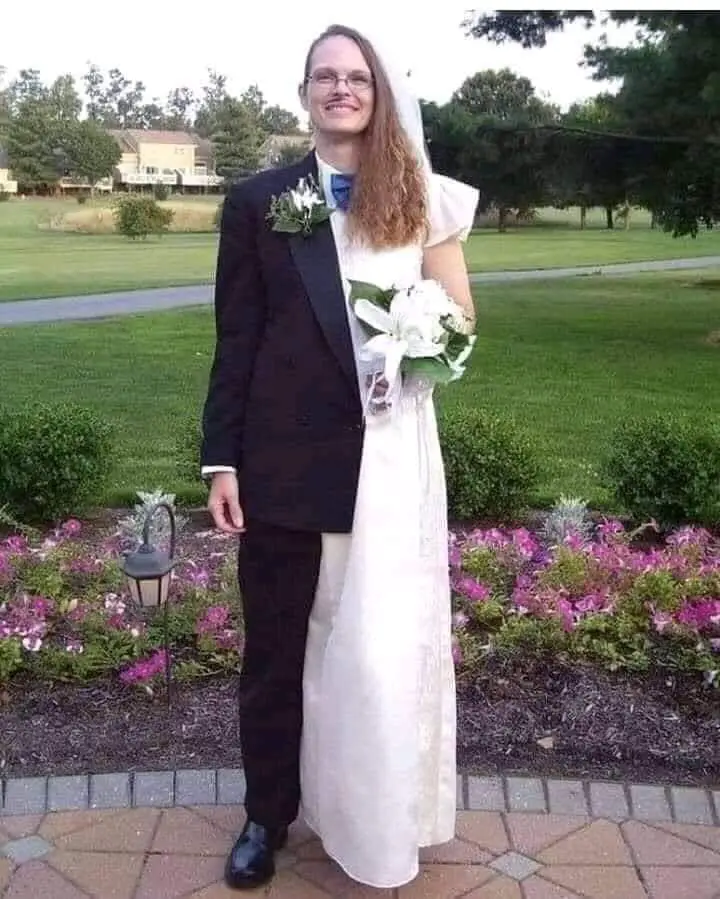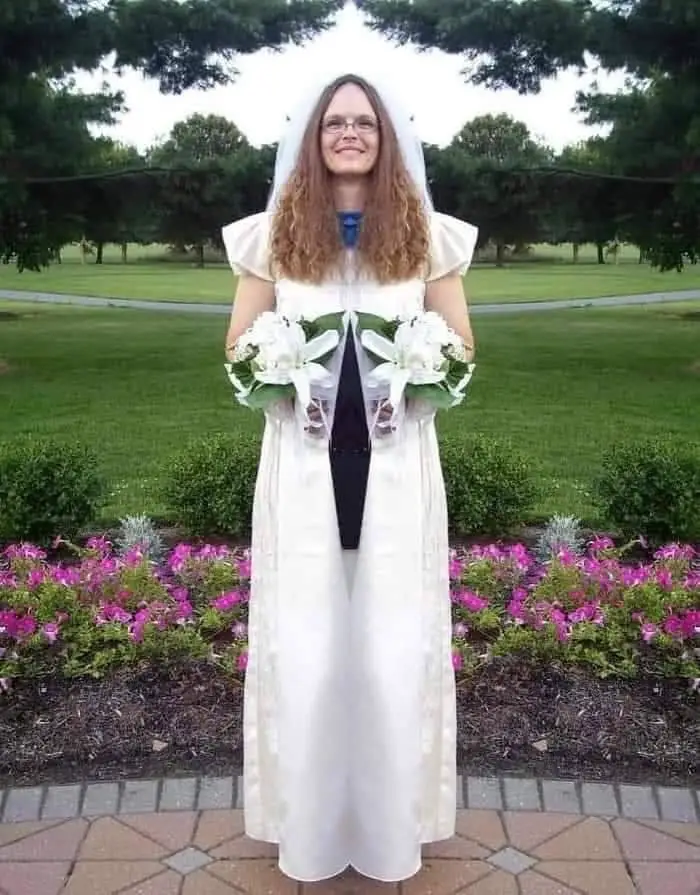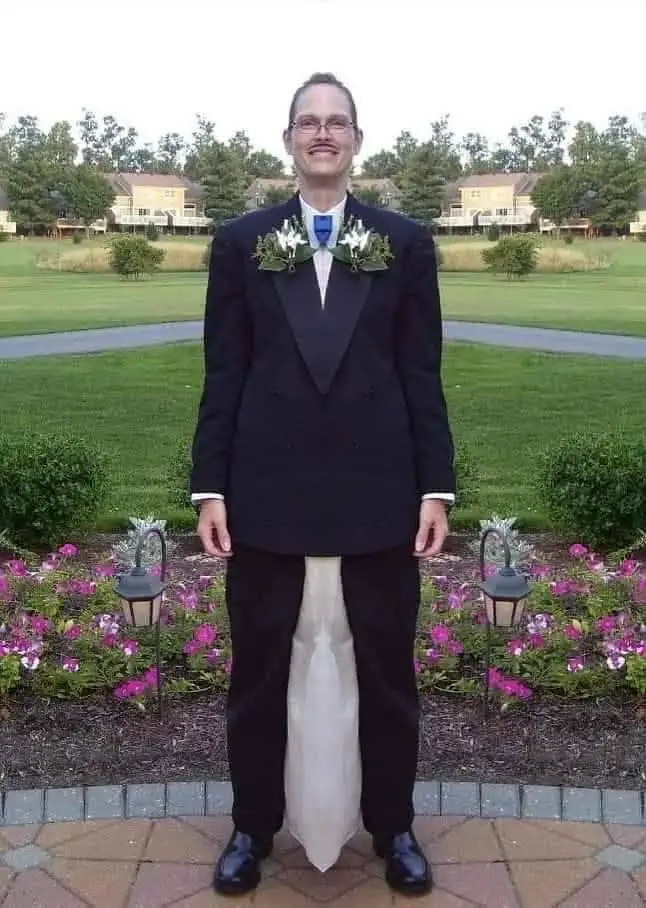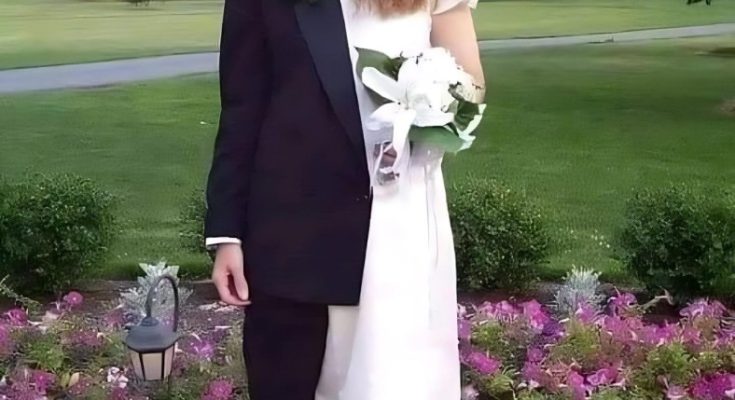In a world where romantic relationships and traditional marriage are often seen as the path to happiness, Antoine Cheval, a French man, has chosen a unique and empowering journey—he married himself. After a series of unsuccessful relationships and unrequited marriage proposals, Antoine decided to commit to the one person who has been with him through every high and low: himself. This act, known as “sologamy,” represents a bold declaration of self-love and a challenge to conventional societal norms.

Who is Antoine Cheval? A Journey of Self-Love and Acceptance
Antoine Cheval’s story is one of resilience and self-discovery. After facing numerous heartbreaks and rejections, he realized he could find happiness without the validation of a romantic partner. Rather than searching endlessly for “the one,” Antoine took the unconventional path of committing to himself. His self-marriage, complete with vows, a reception, and even guests, wasn’t merely a symbolic act; it was a declaration of his worth and a commitment to prioritizing his well-being.
While some may view his choice as unusual, Antoine’s story highlights an important message: love can be found within oneself. His decision is part of a growing movement of people choosing to celebrate self-worth through sologamy, reinforcing the idea that personal fulfillment doesn’t have to depend on traditional relationships.
What is Sologamy? Understanding the Concept of Self-Marriage
Sologamy, or self-marriage, is a practice where an individual marries themselves. Though it might seem unusual, sologamy is gaining popularity as more people embrace independence, self-love, and personal growth. Unlike a traditional marriage, sologamy isn’t legally binding; rather, it’s a deeply personal commitment to one’s own happiness and self-care.
Supporters of sologamy see it as an empowering gesture, a way to affirm one’s own value and live life on one’s own terms. Critics, however, argue that it lacks the tangible benefits of a legally recognized marriage. Nonetheless, those who choose self-marriage view it as an act of freedom from societal expectations, a chance to reinforce their worth without needing validation from anyone else.
Antoine Cheval’s Self-Marriage Ceremony: Celebrating His Commitment
For Antoine, the self-marriage ceremony was no different from a traditional wedding, except that he stood alone at the altar. He took vows to honor and cherish himself, emphasizing his commitment to living authentically and nurturing his well-being. The celebration included guests, a reception, and even a wedding cake, symbolizing the depth of his commitment.
A self-marriage ceremony can mirror all the trappings of a traditional wedding: vows, celebrations, and sometimes even professional counseling to prepare for the emotional journey ahead. For Antoine, and many others, this commitment to oneself represents a major step toward self-acceptance, reinforcing a mindset that self-worth doesn’t rely on external approval.
Sologamy Around the World: A Growing Trend
Antoine Cheval is not alone in his decision to marry himself. Over the years, self-marriage has attracted attention worldwide, with both men and women participating in sologamy as an expression of empowerment. Notable examples include:
- Sophie Tanner (2014, UK): British photographer Sophie Tanner married herself in a ceremony attended by friends and family. Her decision to self-marry was a celebration of her independence, emphasizing that a woman’s worth is not tied to her relationship status.
- Laura M. (2017, Italy): Following a divorce, fitness trainer Laura M. married herself in Italy. She used the ceremony as a means of self-reclamation and an affirmation of her independence, rejecting the notion that happiness relies on external relationships.
- Kshama Bindu (2022, India): Kshama, a woman from Gujarat, India, married herself in a Hindu ceremony, complete with traditional customs and rituals. As a bisexual woman, she wanted to experience the joy of being a bride but didn’t feel the need to marry someone else to fulfill that dream. Her decision made headlines as India’s first instance of sologamy, challenging cultural norms and redefining the meaning of marriage.
These examples reflect the diversity of those who choose self-marriage and showcase how this growing trend transcends gender, nationality, and social class.

The Philosophy Behind Sologamy: A Practice of Self-Love and Empowerment
At its core, sologamy is about more than just a wedding. It’s a powerful practice of self-love, inviting people to embrace emotional independence and recognize their own worth. Those who marry themselves often report a heightened sense of self-confidence and a deeper understanding of their needs, desires, and goals. For people like Antoine, sologamy is a statement: before we can truly love others, we must learn to love and accept ourselves.
This philosophy challenges conventional views of love and relationships, suggesting that personal happiness is achievable without a partner. Sologamy invites us to reconsider the idea that marriage or a committed partnership is essential for fulfillment. Instead, it promotes the belief that happiness is a personal journey and that self-love is an essential foundation for all relationships.
Critics and Supporters: The Debate Around Self-Marriage
While the idea of self-marriage has gained support, it also has its critics. Some argue that sologamy trivializes the institution of marriage, while others believe it’s simply a way for individuals to seek attention. There’s also the question of whether sologamy truly satisfies one’s emotional needs or if it’s merely a response to societal pressures.
Supporters, however, see self-marriage as a positive act of self-affirmation. For them, sologamy is not about rejecting romantic love but rather about celebrating personal growth and independence. By choosing to marry themselves, individuals are making a commitment to self-care and emotional health, something that benefits not only them but also the people around them. Antoine’s choice to marry himself, for instance, wasn’t about rejecting the idea of love—it was about embracing his worth and setting a foundation for future relationships.

Lessons from Antoine Cheval: Embracing Self-Love as a Path to Happiness
Antoine Cheval’s story serves as a reminder that love doesn’t always have to come from someone else; it can and should come from within. His journey of self-marriage highlights the importance of valuing oneself and seeking happiness on one’s own terms. By choosing to marry himself, Antoine teaches us that it’s okay to prioritize self-worth and to make peace with being single if it means achieving personal fulfillment.
His decision also challenges us to think about our own relationships with ourselves. Are we too focused on external validation? Are we taking the time to nurture our own well-being? Antoine’s self-marriage is a call to reflect on these questions and to consider how we might embrace self-love in our own lives, regardless of whether we choose sologamy.
Conclusion: The Power of Choosing Yourself First
Whether you agree with the concept of sologamy or not, Antoine Cheval’s story is a powerful reminder that the most important relationship we have is with ourselves. Self-love is not just a trend but a vital practice that can lead to greater confidence, happiness, and emotional resilience. By marrying himself, Antoine has shown the world that love is something we can find within, and that a fulfilling life can come from choosing ourselves first.
In a society that often emphasizes romantic relationships as the ultimate form of happiness, Antoine’s choice to marry himself is a bold reminder that we are complete on our own. For Antoine, and for anyone who dares to put themselves first, self-love isn’t a consolation prize—it’s the ultimate victory. 💍❤️



